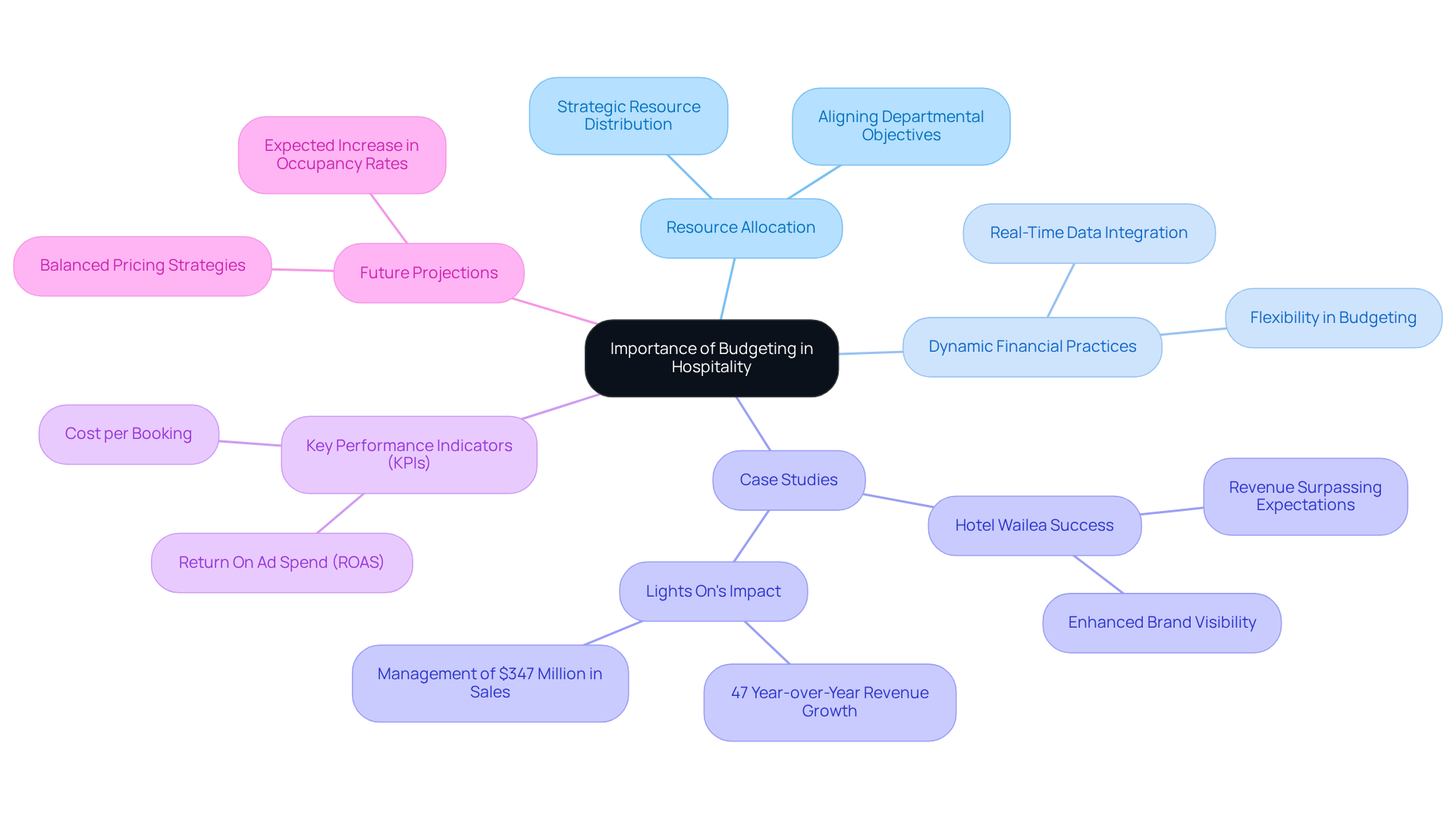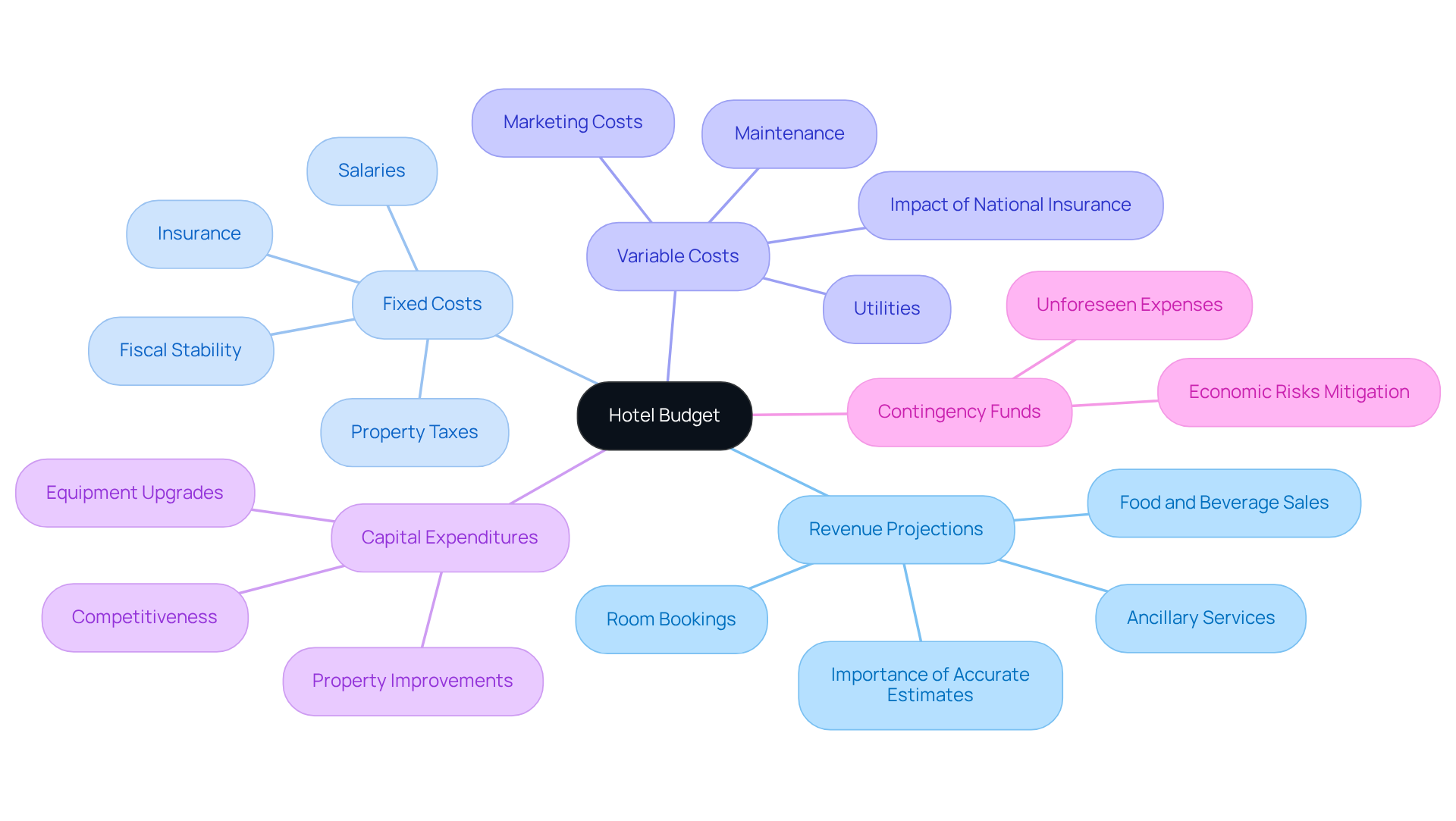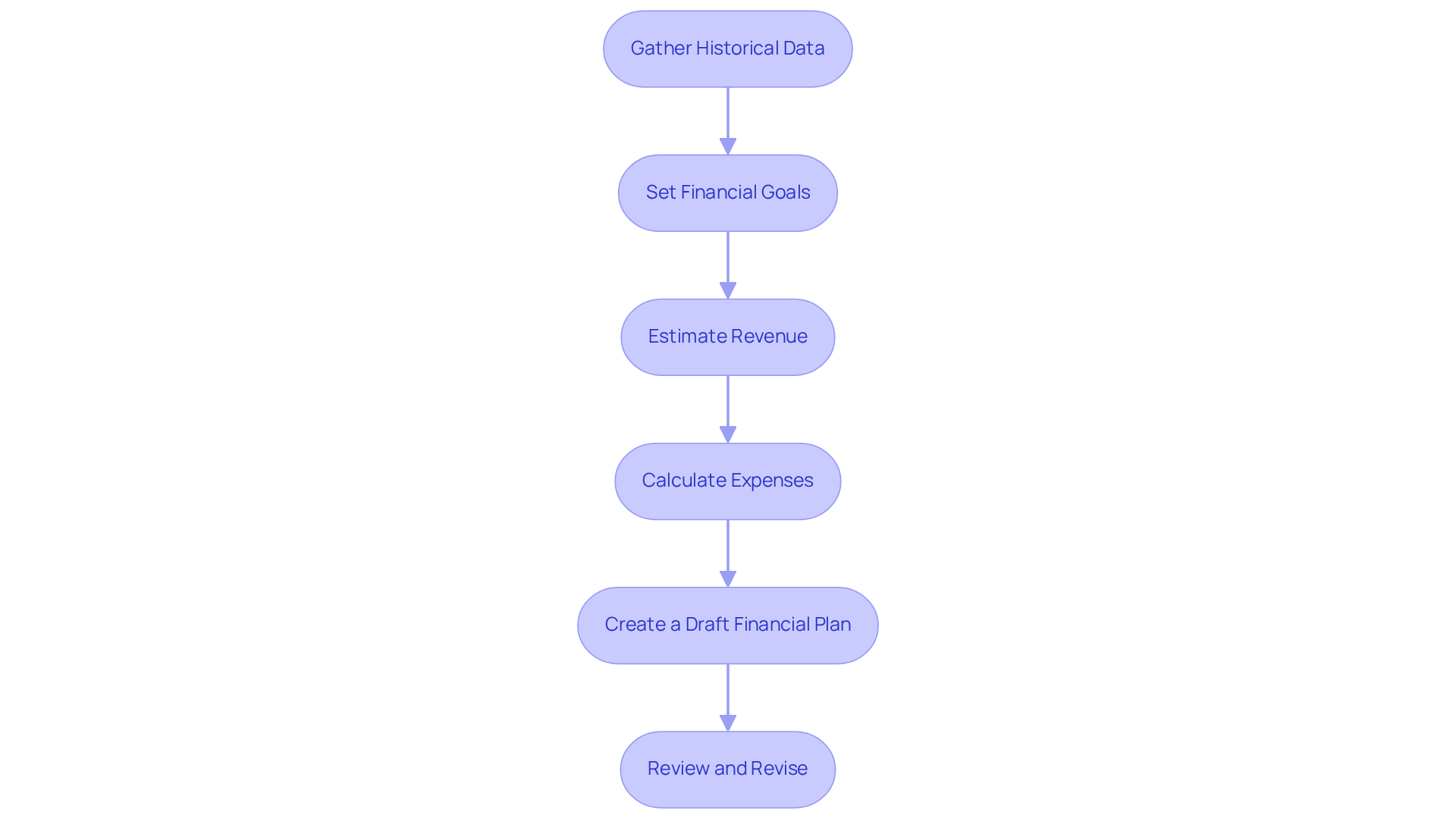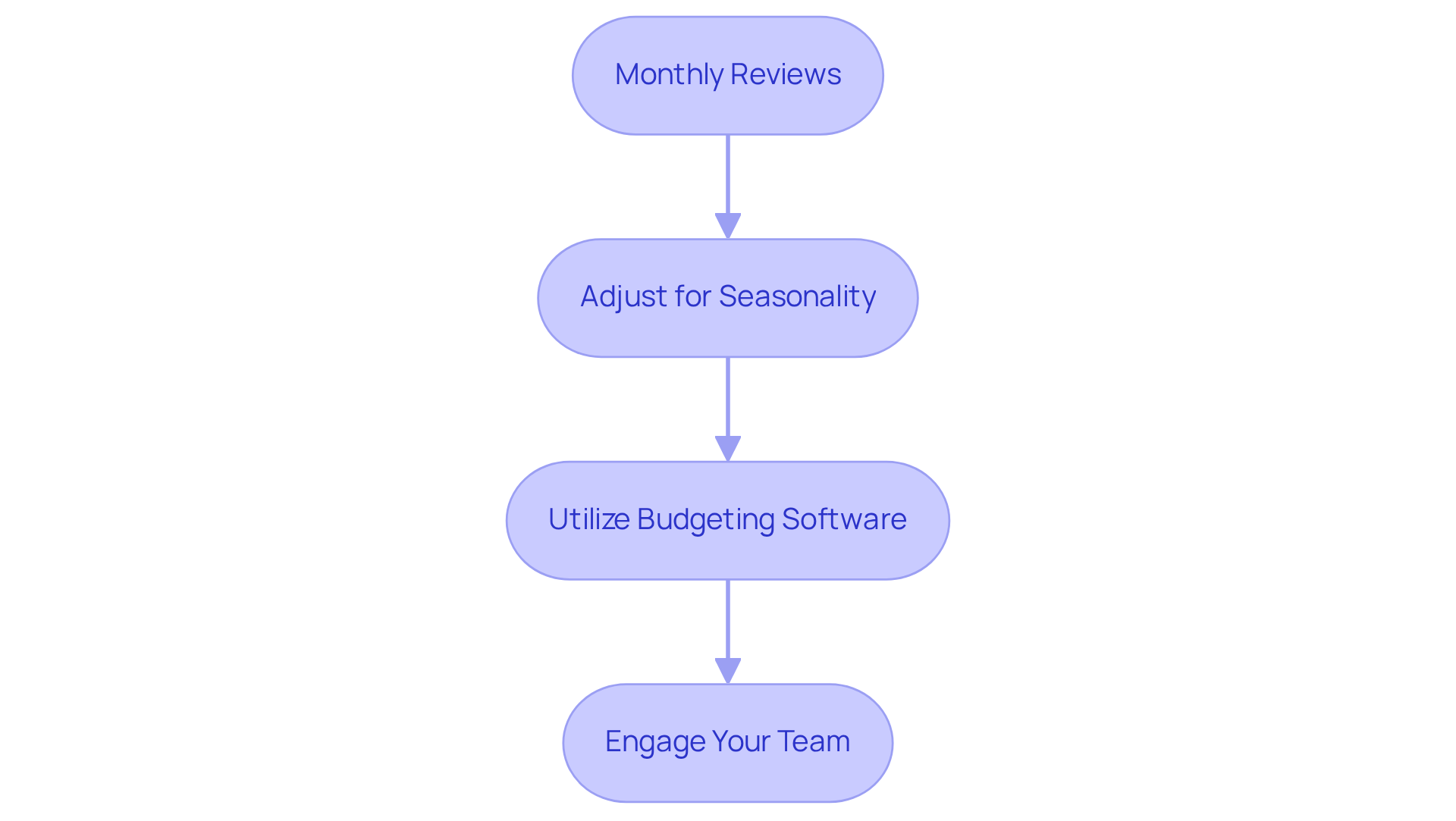The article presents a four-step process for developing a hotel budget, underscoring the critical role of strategic financial planning in achieving economic success. It highlights essential components of a hotel budget, including:
Furthermore, it advocates for consistent monitoring and adjustments to respond to market changes, thereby enhancing operational efficiency and profitability. This approach not only addresses the immediate challenges faced by hotel owners but also positions them for long-term success in a competitive landscape.
In the competitive landscape of the hospitality industry, effective budgeting transcends mere financial exercise; it stands as a pivotal strategy that can dictate a hotel's success or failure. As the industry prepares for 2025, the necessity for a well-structured budget becomes increasingly evident, providing hotel owners with a roadmap to navigate economic challenges and capitalize on growth opportunities.
However, a pressing question lingers: how can hotels formulate a dynamic budget that not only fulfills their financial objectives but also adapts to the ever-evolving market conditions?
This article delves into the essential steps for crafting a robust hotel budget, ensuring establishments are well-equipped for sustained profitability and operational excellence.
The practice of budgeting in hotels stands as a pivotal strategy within the hospitality sector, empowering hotel proprietors to allocate resources strategically, anticipate economic challenges, and capitalize on growth opportunities. A meticulously organized budget in hotels serves as a monetary roadmap, guiding decision-making across all departments to ensure they operate within their limits while pursuing profitability. Recent trends reveal a shift toward dynamic financial practices, where flexibility and real-time data integration take precedence. This approach enables establishments to adapt rapidly to market fluctuations, thereby enhancing their financial outcomes.
For instance, hotels that have adopted advanced financial planning technologies have reported noteworthy improvements in efficiency and accuracy. A compelling case study featuring Hotel Wailea showcases how tailored financial strategies can result in surpassing revenue expectations and boosting brand visibility following renovations. Such success stories underscore the tangible benefits of effective financial planning, particularly when aligned with marketing strategies that drive bookings.
Moreover, understanding the impact of the budget in hotels on economic performance is crucial. A comprehensive budget in hotels not only delineates anticipated income and expenses but also aligns departmental objectives with the establishment's overarching financial goals. By focusing on key performance indicators (KPIs) and leveraging data-driven insights, managers are equipped to make informed decisions that enhance operational efficiency and aimed at attracting high-spending visitors.
As we approach 2025, the hospitality industry anticipates a modest increase in occupancy rates and average daily rates, amplifying the importance of strategic financial planning. Hotels are urged to implement balanced pricing strategies and expand their guest acquisition efforts to target high-spending demographics. This proactive approach to budget in hotels not only equips establishments for market fluctuations but also positions them for sustained growth and profitability in a competitive landscape, ultimately enhancing their marketing effectiveness.

Creating an effective lodging budget requires a clear identification of its key components. These typically include:
By explicitly outlining these elements and engaging department leaders in the funding process, managers can develop a comprehensive plan that accurately reflects the operational requirements of the establishment. This ultimately guides and resource allocation. This collaborative approach not only enhances the precision of the financial plan but also cultivates a sense of ownership among team members.

Creating a hotel plan demands a methodical strategy that ensures a budget in hotels for economic success. Here’s a step-by-step process:
By following these steps, managers can create a plan that not only aligns with their monetary objectives but also addresses operational requirements, ultimately enhancing overall performance. Incorporating successful practices from case studies, such as Hilton Worldwide's data-driven financial planning, can further enhance the effectiveness of your financial process.

Once your budget in hotels is established, consistent performance evaluation becomes essential for economic success. To ensure effective oversight, consider the following key strategies:
By actively monitoring and adjusting the budget in hotels, managers can stay on track to achieve their financial goals while adapting to changes in the market and operational landscape. This proactive approach is vital, especially as occupancy rates are expected to increase by approximately 0.7% in 2025, which emphasizes the need for flexibility in the budget in hotels. Furthermore, implementing dynamic pricing strategies can enhance revenue management by allowing real-time adjustments based on market conditions, a process in which Lights On can provide invaluable support.

Creating a budget for hotels transcends a mere financial exercise; it is a fundamental strategy that establishes the groundwork for long-term success in the hospitality industry. A well-structured budget acts as a guiding framework, enabling hotel managers to allocate resources judiciously, anticipate market shifts, and seize growth opportunities. As the industry evolves, embracing dynamic budgeting practices that incorporate real-time data and flexibility becomes essential for maintaining a competitive edge.
The article delineates the critical steps involved in effective hotel budgeting, including the identification of key components such as:
By adhering to a systematic approach—gathering historical data, setting financial goals, estimating revenues, and regularly monitoring performance—hotels can construct a robust financial plan that aligns operational strategies with overarching goals. Engaging team members in this process enhances accuracy and fosters a sense of ownership, ultimately leading to improved financial outcomes.
In conclusion, the ability to adapt and refine budgeting strategies is vital for navigating the complexities of the hospitality landscape. As occupancy rates are projected to rise, hotels must not only implement effective budgeting practices but also remain vigilant in monitoring and adjusting their financial plans. Embracing a proactive approach to budgeting will empower hotels to optimize their resources, enhance guest experiences, and achieve sustained profitability. The significance of strategic financial planning cannot be overstated; it is the cornerstone of success that will drive the hospitality industry forward in 2025 and beyond.
Why is budgeting important in the hospitality sector?
Budgeting is crucial in the hospitality sector as it allows hotel proprietors to allocate resources strategically, anticipate economic challenges, and capitalize on growth opportunities. It serves as a monetary roadmap guiding decision-making across all departments to ensure profitability.
What recent trends have emerged in hotel budgeting practices?
Recent trends indicate a shift toward dynamic financial practices that emphasize flexibility and real-time data integration, enabling hotels to adapt quickly to market fluctuations and improve financial outcomes.
How can advanced financial planning technologies benefit hotels?
Hotels that adopt advanced financial planning technologies have reported improvements in efficiency and accuracy, which can lead to surpassing revenue expectations and enhancing brand visibility, especially after renovations.
What role does a comprehensive budget play in a hotel's economic performance?
A comprehensive budget outlines anticipated income and expenses while aligning departmental objectives with the hotel's overall financial goals. It helps managers make informed decisions that enhance operational efficiency and support marketing initiatives.
What should hotel managers focus on to improve decision-making?
Hotel managers should focus on key performance indicators (KPIs) and leverage data-driven insights to make informed decisions that enhance operational efficiency and attract high-spending visitors.
What are the expectations for the hospitality industry as we approach 2025?
The hospitality industry anticipates a modest increase in occupancy rates and average daily rates by 2025, highlighting the importance of strategic financial planning.
What strategies should hotels implement for sustained growth and profitability?
Hotels should implement balanced pricing strategies and expand guest acquisition efforts to target high-spending demographics, equipping themselves for market fluctuations and enhancing their marketing effectiveness.
Transform your group booking strategies with Lights On and watch your occupancy soar.